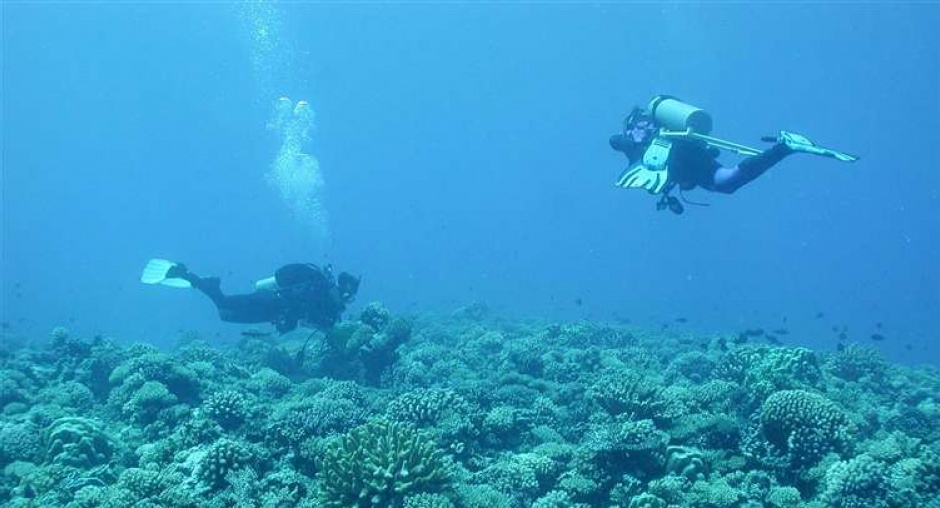
Coral reefs are among the most diverse and productive of all ecosystems and they have immense ecological, social and economic value. Increasingly, coral reefs are being affected by perturbations that range from short-term, localized disturbances - where return to the original state is possible - to more chronic, widespread influences of shifts in climate that may fundamentally alter the ecosystem. These processes occur over multiple decades, and are particularly well-suited for site-based research through the NSF Long Term Ecological Research Program (LTER).
The Moorea Coral Reef (MCR) LTER site, established in 2004, is an interdisciplinary, landscape-scale program whose goal is to advance understanding of key mechanisms that modulate ecosystem processes and community structure of coral reefs through integrated research, education and outreach. Our site is the coral reef complex that encircles the 60 km perimeter of Moorea (17°30'S, 149°50'W), French Polynesia.
A fundamental goal of the the Moorea Coral Reef (MCR) LTER site is to advance understanding that enables accurate forecasts of the behavior of coral reef ecosystems to environmental forcing. To this end we seek to understand the mechanistic basis of change in coral reefs by: (i) elucidating major controls over reef dynamics, and (ii) determining how they are influenced by the major pulse disturbances (e.g., cyclones, coral bleaching, coral predator outbreaks) and local press drivers (e.g., fishing, nutrient enrichment) to which they are increasingly being subjected, against a background of slowly changing environmental drivers associated with global climate change and ocean acidification.
In the first phase of the program, we developed an island-scale understanding of community structure in relation to variation in physical and biological forcing to predict how coral reefs will respond to local and regional drivers of community change. Between 2007 and 2010, the fore reef was impacted by a series of natural disturbances, which enabled us to study the processes involved in reef resilience and better understand the process of recovery of disturbed coral reefs. Our work will advance understanding of resilience properties of coral reef ecosystems, and how key community and ecosystem functions could be altered in the future by long-term (e.g., global climate change and ocean acidification) and short-term (e.g., nutrient enrichment) drivers. .



